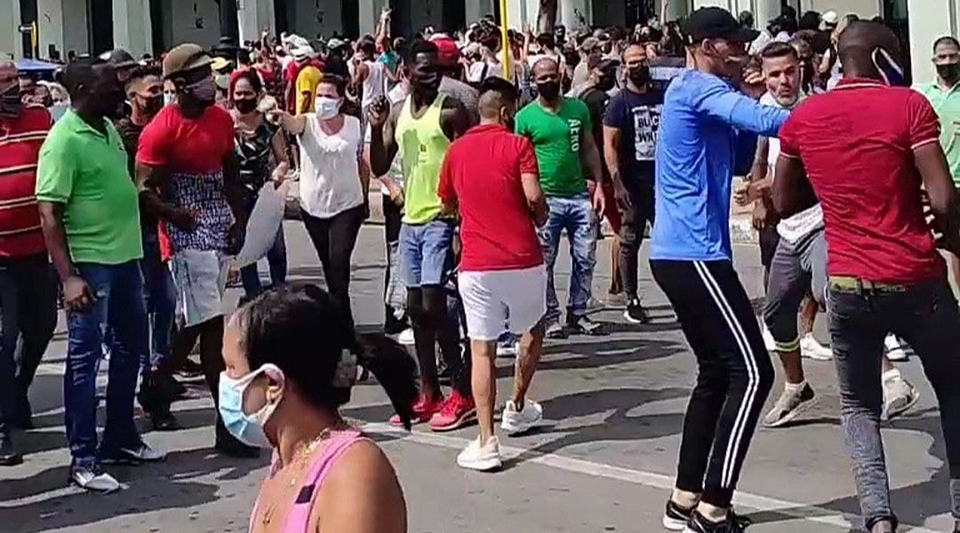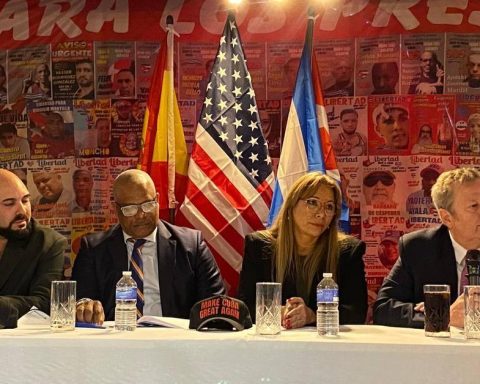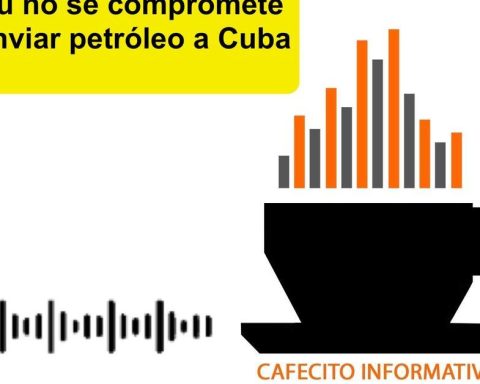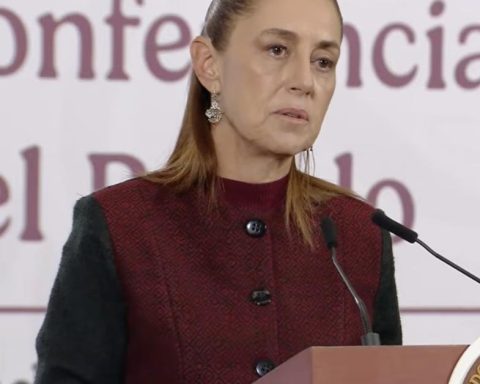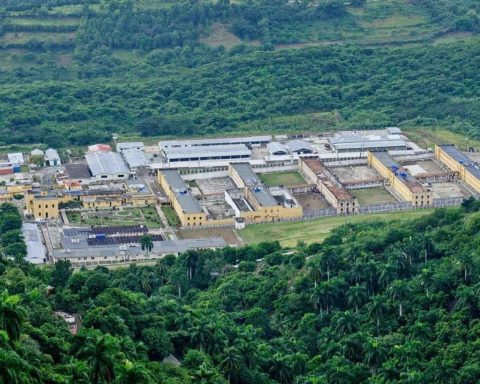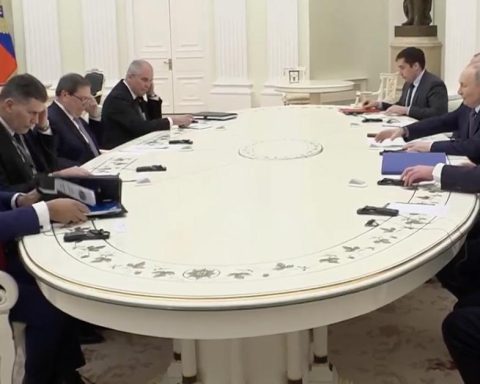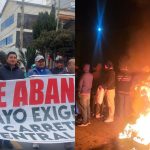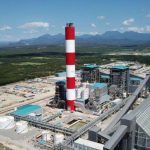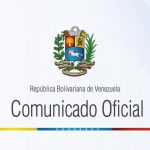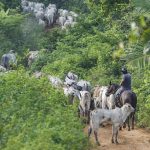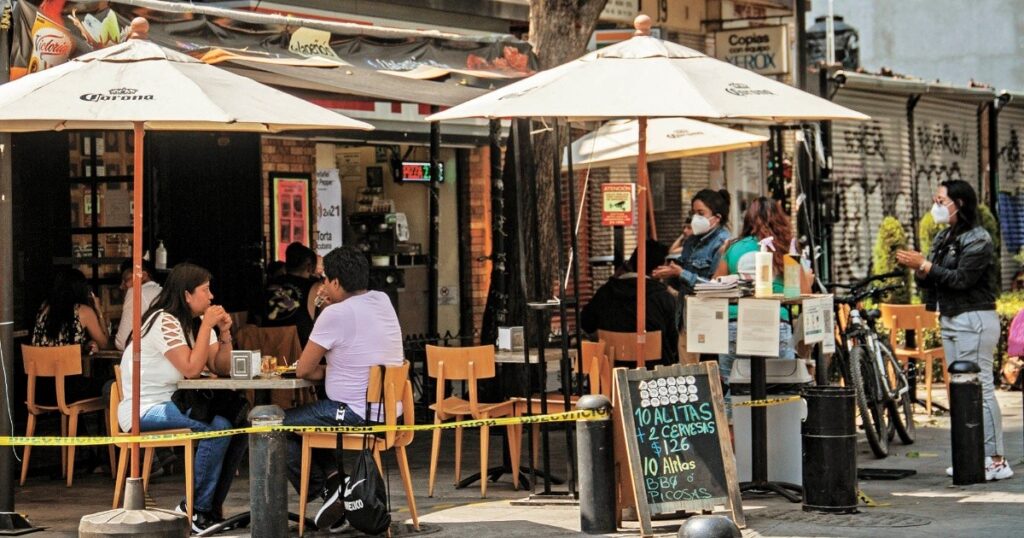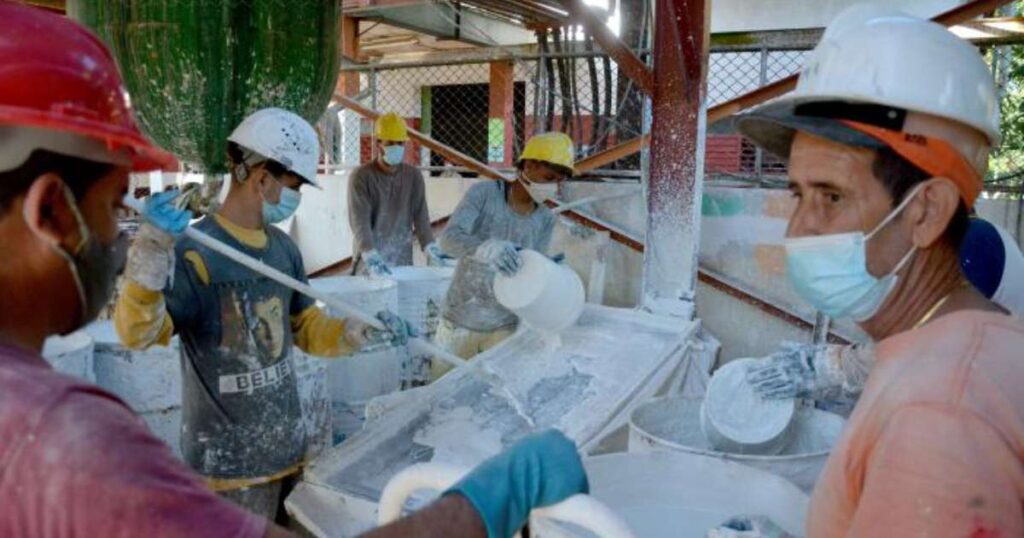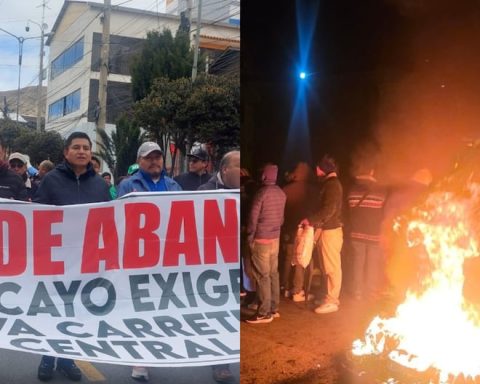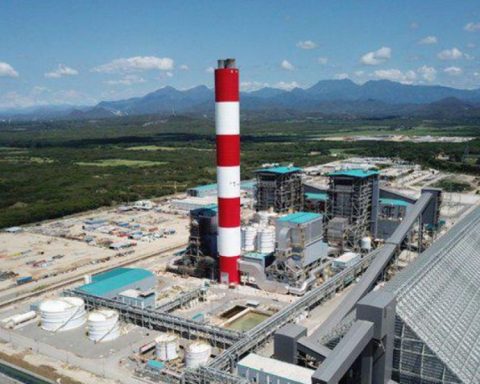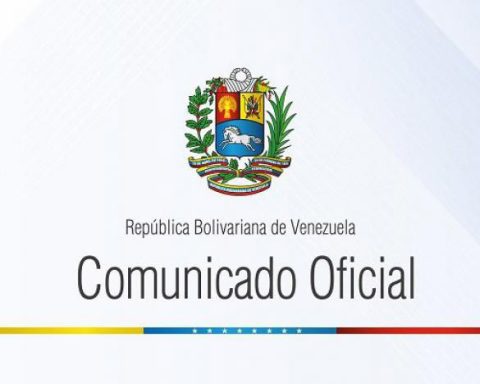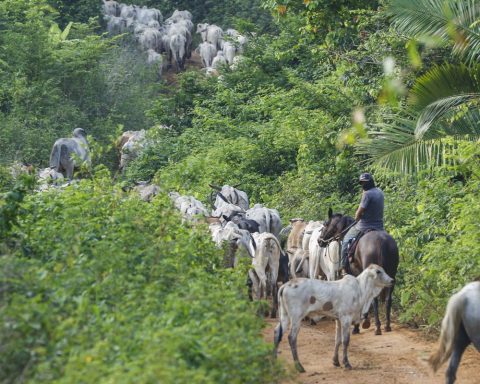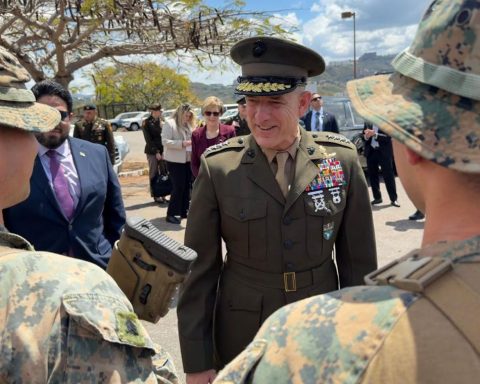A fortnight of civil organizations presented this Wednesday in Mexico City new testimonies proving that torture is practiced in Cuba, in addition to recounting other human rights violations on the island, such as arbitrary arrests or forced labor. the calls missions medical.
The group, made up of Civil Rights Defenders, Cubalex, Article 19, Justicia 11J, Prisoners Defenders and ten other NGOs, detailed some of the systematic punishments in Cuban prisons.
One of them is being handcuffed with their arms raised, as documented by the Cubalex legal organization with sources in several of the prisoners themselves and advanced in their social networks.
“This form of torture consists of handcuffing the inmate on one arm and the other handcuffing him from a high place, so that the limb is suspended and in a position in which the person cannot sit down,” explains Cubalex, a position in which “the prisoner is left for prolonged periods of time that can even reach 24 hours or more”.
“This form of torture consists of handcuffing the inmate on one arm and the other handcuffing him from a high place, so that the limb is suspended and in a position in which the person cannot sit”
One of the captives cited by Cubalex is alexis sabatelacollaborator of the Cuban Observatory of Human Rights, who claims to have been handcuffed to bars in the Kilo 7 and Kilo 9 prisons, in Camagüey, where “it was common to hang prisoners with their arms raised, either open or closed.”
Another testimony collected is that of Felix Navarro about the Canaleta prison, in Ciego de Ávila, where he was imprisoned for several years after being arrested in the so-called Black Spring of 2003. There, the opponent had denounced, it was common to hang inmates the entire night and in winter, every certain time, throw buckets of water at them.
In the maximum security prison of Agüica, Matanzas, where Navarro is now after being sentenced to nine years by the demonstrations of last July 11, the opposition Jose Diaz Silvaleader of the Opposition Movement for a New Republic and detained since March 3, was also handcuffed to the ceiling for several hours, reports Cubalex.
Ángel Yunier Remón, who suffers from osteoarthritis as a result of the torture he was subjected to with handcuffs, told this NGO that when he suffered this punishment, “you feel pain, your hand cramps, you don’t feel it. It turns black, cold. You can’t even move your shoulder. It immobilizes you.”
Rapper Maykel Castillo Osorb, in prison without trial since last year, has said that he was also handcuffed, “but in a different way”: in his case, “they made him put his hands and feet out through the bars and standing in that position they handcuffed his limbs.” Thus, they could leave him for up to three days, “causing him severe pain in his torso and shoulders.”
The organizations gathered this Wednesday at a press conference celebrated that the United Nations Committee Against Torture (CAT), after reviewing the situation in Cuba between April 21 and 29 in Geneva (Switzerland) , has asked the regime for “precise information” on the matter.
Specifically, the UN demands that the Cuban State respond, no later than May 13, 2023, regarding “an independent inspection of places of detention, the situation of human rights defenders, journalists, activists and artists in the Island and the investigation and sanction of the events of July 11, 2021”.
For Darcy Borrero, a member of the Justice 11J group, it is “very valuable that this dialogue has been carried out” with the UN
For Darcy Borrero, a member of the Justice 11J group, which has followed up on the demonstrators arrested after the protests that day, it is “very valuable that this dialogue has been carried out” with the Committee against Torture, and that it has ” emphasis” precisely on the protests of that day, as well as on the sanction that the agents who subjected the demonstrators to punishment, arrests and interrogations should have.
Borrero also describes as key the attention of the UN to the case of the murder of Diubis Laurencio, in La Güinera, shot in the back by a policeman on July 12.
In its most recent report on the Island, and among other considerations, the CAT regrets that in Cuba a national human rights institution has not yet been created, that there is no independence in the judiciary, nor is the independent exercise of the legal profession guaranteed, nor are there guarantees that military courts do not try civilians. On the Island, in short, the “fundamental safeguards against torture of all detained persons” are not guaranteed.
Already in his speech last May 11 in Genevaand after reviewing the complaints and testimonies collected by different civil organizations, the vice president of the UN Committee against Torture, Sebastien Touzéasserted that the Cuban State has taken measures “manifestly contrary to the Convention against Torture.”
Touzé also said that the “high number of arrests”, especially after “the events of July 2021” offers “an alarming vision”.
The interventions of the Cuban Government before the instance, on April 21 and 29, were of little use, in which, according to a statement from the Ministry of Foreign Affairs, they presented “the broad and solid system of laws, rules, regulations and policies that guarantee in Cuba the integral protection of the person, in accordance with the provisions of the Convention”, as well as “the actions conceived and applied to prevent acts of torture, cruel, inhuman and degrading treatment from occurring in the national territory, frequent before 1959 and radically eliminated and prohibited by the Cuban Revolution”.
Before the beginning of this session of the Committee Against Torture, last April, the same group that presented testimonies from prisoners this Wednesday in Mexico warned of worrying issues in current Cuban laws and in those that are about to be approved.
Similarly, the Madrid-based NGO Prisoners Defenders He also presented a report to the Committee in which he identified up to “15 patterns” of mistreatment and torture of prisoners on the Island, including deprivation of medical care, forced labor outside of his criminal sentence, solitary confinement punishment, physical aggression and deprivation of water or food, sleep and communication with lawyers and relatives. The conclusion of that document was forceful: the use of torture is systematic in the political prisoners of Cuba.
________________________
Collaborate with our work:
The team of 14ymedio is committed to doing serious journalism that reflects the reality of deep Cuba. Thank you for joining us on this long road. We invite you to continue supporting us, but this time becoming a member of our journal. Together we can continue transforming journalism in Cuba.
